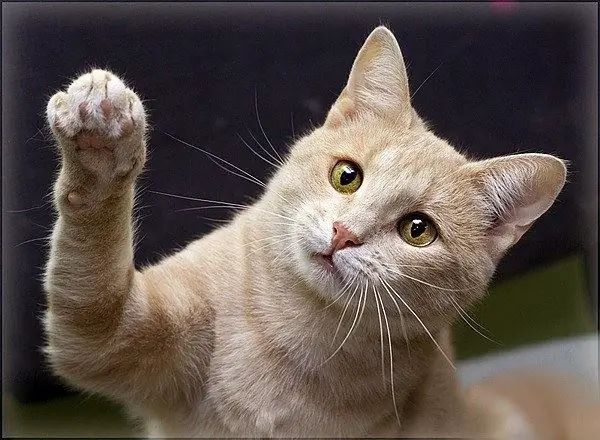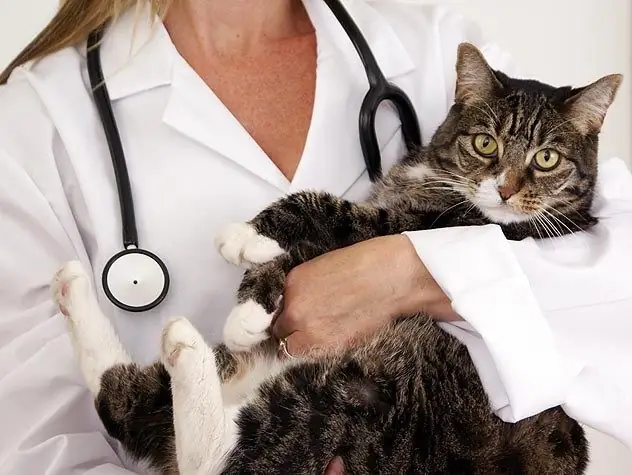- Author Delia Mathews mathews@animalspeace.com.
- Public 2023-12-16 00:05.
- Last modified 2025-01-22 15:45.
It is worth thinking about what vaccinations should be given to pets even before starting a cat or dog, because one of the conditions for successful vaccination is the good health of the animal. Only in this case will the vaccine become a reliable protection against infectious diseases.

What are the vaccinations?

Among the diseases against which kittens are vaccinated, the most common are such dangerous diseases as rabies, infectious peritonitis, feline leukemia, viral rhinorocheitis, and panleukopenia. Individual preferences depend on the area in which your pet is and will live, age, and also whether it will be in contact with other cats or animals. If the owners plan to take the cat to the dacha, where wild animals are found (for example, foxes or badgers), it is very important to get the rabies vaccine in a timely manner.
Breeders who care about their reputation will definitely provide all the necessary information and even help you choose a clinic.
According to many veterinarians, both Russian and foreign, you shouldn't even think about whether to get vaccinated or not. It is only important to choose the necessary ones depending on the conditions and terrain where this or that kitten lives. For example, on the territory of the Leningrad Region, in comparison with other Russian regions, there have been practically no cases of rabies in recent years, so many owners refrain from carrying out the appropriate vaccination. In areas where the disease is worse, rabies vaccination is mandatory for both kittens and puppies.
Preparing for vaccinations

Before getting vaccinated, it is important to make sure that your pet is completely healthy. You should not spare the time to observe how the kitten behaves and eats, in order to get the necessary amount of information about its well-being and to know for sure that the animal is healthy. If you have any doubts about the health of a cat or cat, it is better to postpone the vaccination and seek help from specialists.
The vaccinated cat should have a normal fever, appetite, and stool, and be free of any external signs of illness, such as eye or ear discharge, joint swelling, or coughing. Also, before vaccination (about 1-2 weeks), it is important to make sure that the animal does not have fleas and worms. If any parasites are identified, it is necessary to take the necessary measures, and only then go for vaccination. Otherwise, instead of forming immunity from a particular disease, you can endanger the health and even the life of the kitten.
You can find out in advance about the vaccinations that need to be given to thoroughbred kittens - even at the time of buying a pet, or better even before starting a fluffy friend.
It should be noted that for travel and exhibitions, the animal must not only be necessarily vaccinated, but also have a special veterinary passport with the appropriate marks.
The age for the first vaccination must be determined by a specialist - depending on the type of vaccine and the health of the animal. Quite often, veterinarians advise to carry out the primary vaccination after the kitten is 9-12 weeks old. The complex may include vaccinations against several diseases at once, for example, panleukopenia (also popularly known as distemper), viral rhinotracheitis and calicivirus infection.






